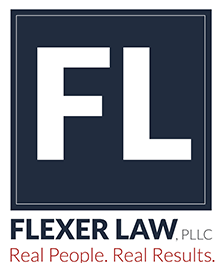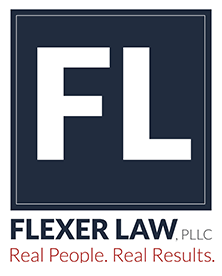
Creditor & Debt Collection Harassment Lawyers in Nashville, TN
Falling behind on your financial obligations is a worrying matter. When creditors or debt collectors engage in harassment over your unpaid accounts, it can escalate into a living nightmare. This type of harassment often involves relentless calls, letters, and texts. It can even include threats and misleading communications from these companies about what you owe and what they can do to collect.
Creditor harassment can lead to heightened stress and anxiety and even cause you to feel unsafe in your own home. It can disrupt your daily life, affect your job or professional relationships, and upset your family.
The worst thing to do when faced with this type of harassment is nothing. You need to understand your rights and options in resolving it and restore control and stability to your life. At Flexer Law, we have been helping Middle Tennessee debtors fight unlawful creditor tactics for 40+ years. Our team can also help put you back on the road to financial solvency through the legitimate tools of Chapter 7 and Chapter 13 bankruptcy.
Contact us for a free initial consultation about your financial scene with a Nashville creditor harassment attorney at (615) 805-6374.
What Is Creditor Harassment?
Creditor harassment includes aggressive or unfair practices by creditors or collection agencies attempting to collect a debt. It can range from excessive phone calls at all hours to threatening and abusive language.
Other forms of harassment may include publishing debtor’s names, making false statements, or using deceptive methods to collect debt. These actions violate not only personal privacy but also debt collection laws.

Why Choose Flexer Law?
Put 40 Years of Experience On Your Side
-
Offering Virtual ConsultationsWith virtual consultations, it's easier than ever to get started.
-
Free Consultations AvailableGet started on your case with a free consultation today.
-
$0 Down Until You FileWe can help you file your bankruptcy with no money down.
What Laws Govern Creditor Harassment?
Several laws exist to protect individuals from creditor harassment.
The Fair Debt Collection Practices Act (FDCPA) is a federal law that prohibits debt collectors from using abusive, unfair, or deceptive practices to collect debts. Under the FDCPA, collectors are restricted in when they can contact you, whom they can contact, and what they can say.
The Telephone Consumer Protection Act (TCPA) regulates how collectors can use phone calls and texts to contact consumers. State laws may further expand upon these protections, offering additional relief to consumers.
The Tennessee Fair Debt Collection Practices Act (TFDCPA) serves as a state-level complement to the federal FDCPA guidelines and protects consumers against malicious debt collection tactics. It stipulates what is deemed unacceptable conduct by creditors and debt collectors in Tennessee.
Like the FDCPA, it restricts when collectors can call debtors, forbids using vulgar or threatening language, and limits the communication methods collectors may use. The TFDCPA also gives consumers legal recourse to sue creditors or collection agencies that engage in prohibited conduct, helping to ensure that the debt collection process is carried out with fairness and dignity.
How to Protect Yourself from Harassment
Protecting oneself against creditor harassment is a multi-step process. It starts with understanding your rights, such as the right to request in writing that a creditor cease communication. Also, keeping detailed records of all interactions with creditors can be beneficial.
Communicate only in writing so you have a record, and consider talking to an attorney if the harassment continues. Be aware of your credit report and financial statements, dispute any inaccuracies immediately, and do not disclose personal financial information.
If the harassment persists, you can file a complaint with the Federal Trade Commission or the state attorney general's office. Furthermore, you can take legal action against the creditors or collection agencies for violations of the FDCPA. Flexer Law can help you in that matter.
How Can Personal Bankruptcy Stop or Prevent Credit Harassment?
Filing for personal bankruptcy can effectively stop credit harassment by the court’s issuance of an automatic stay provision. This stay immediately ceases most collection efforts, including lawsuits, garnishments, and even incessant calls and letters. Lenders who willfully violate the automatic stay may be subject to court sanctions.


